Some gardeners are afraid of shade; they see lack of sun as a restriction on what they can grow. But shade should be seen as an opportunity as it provides the ideal conditions for some of our loveliest and most colourful plants. It’s true that many popular patio plants like the sun but many of our patios and summer houses are partly or even fully shaded and we need beautiful plants to grow there, too. Fortunately, there are plenty and the range covers shrubs, climbers, perennials and even a few annuals and edibles. Growing them in plant pots is best as patios are often laid over poor soil or over hidden builders’ debris and foundations can get in the way when you’re digging planting holes. Containers also allow you to choose the right compost to suit your plants’ ideal conditions.
Shade-loving selection: Perennials
Brunnera
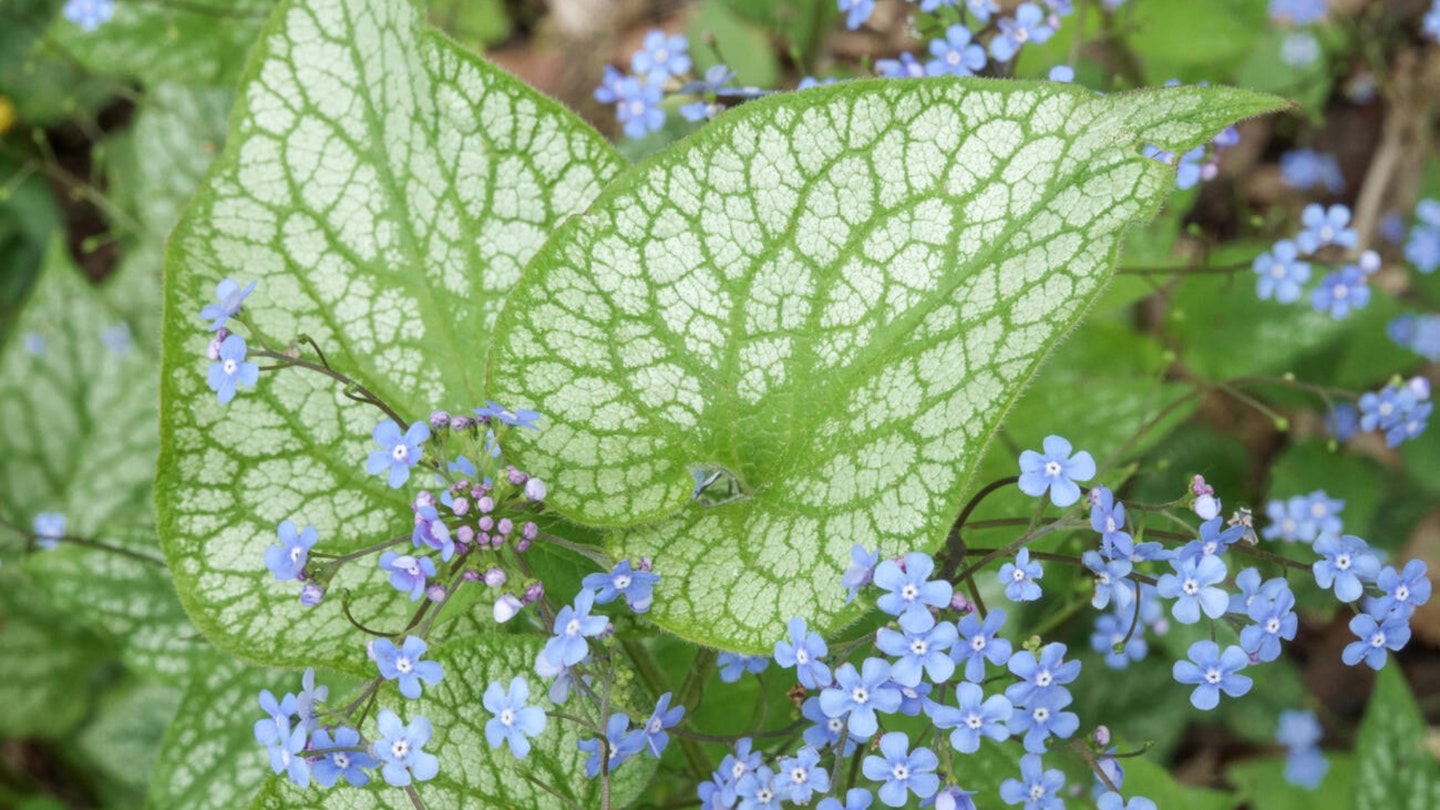
Large, green or heavily silvered, heart-shaped foliage that develops into an elegant mound, topped with small, blue forget-me-not spring flowers. Dies back for winter, so underplant with snowdrops for early colour.
Try: ‘Alexander’s Great’.
Ferns
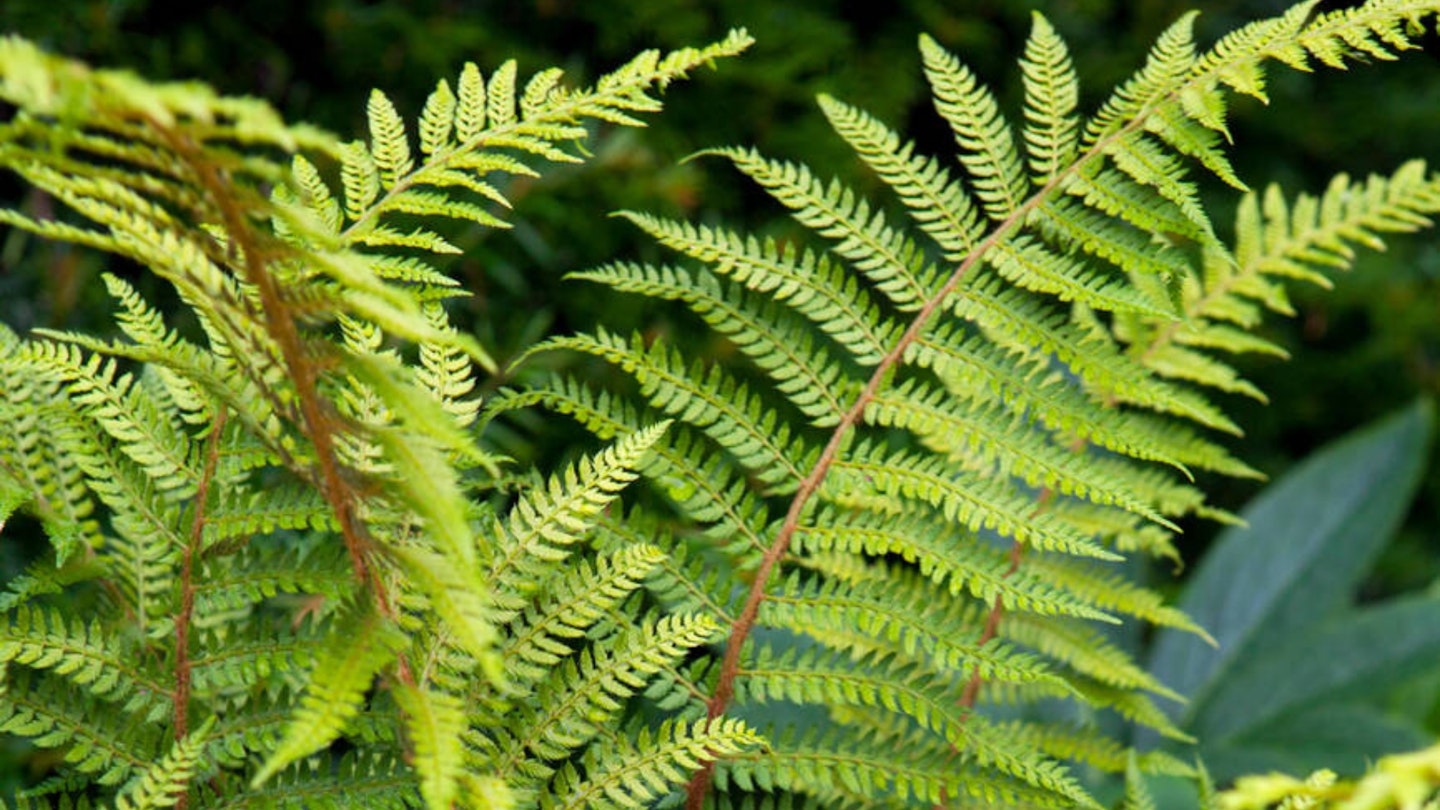
Evergreen ferns often develop into elegant specimens over the years. If you have space, try tree ferns or go for neat, pretty silvered athyriums. All ferns grow more luxuriantly when kept evenly moist.
Try: Polystichum aculeatum (shuttlecock shaped).
Heuchera & heucherella
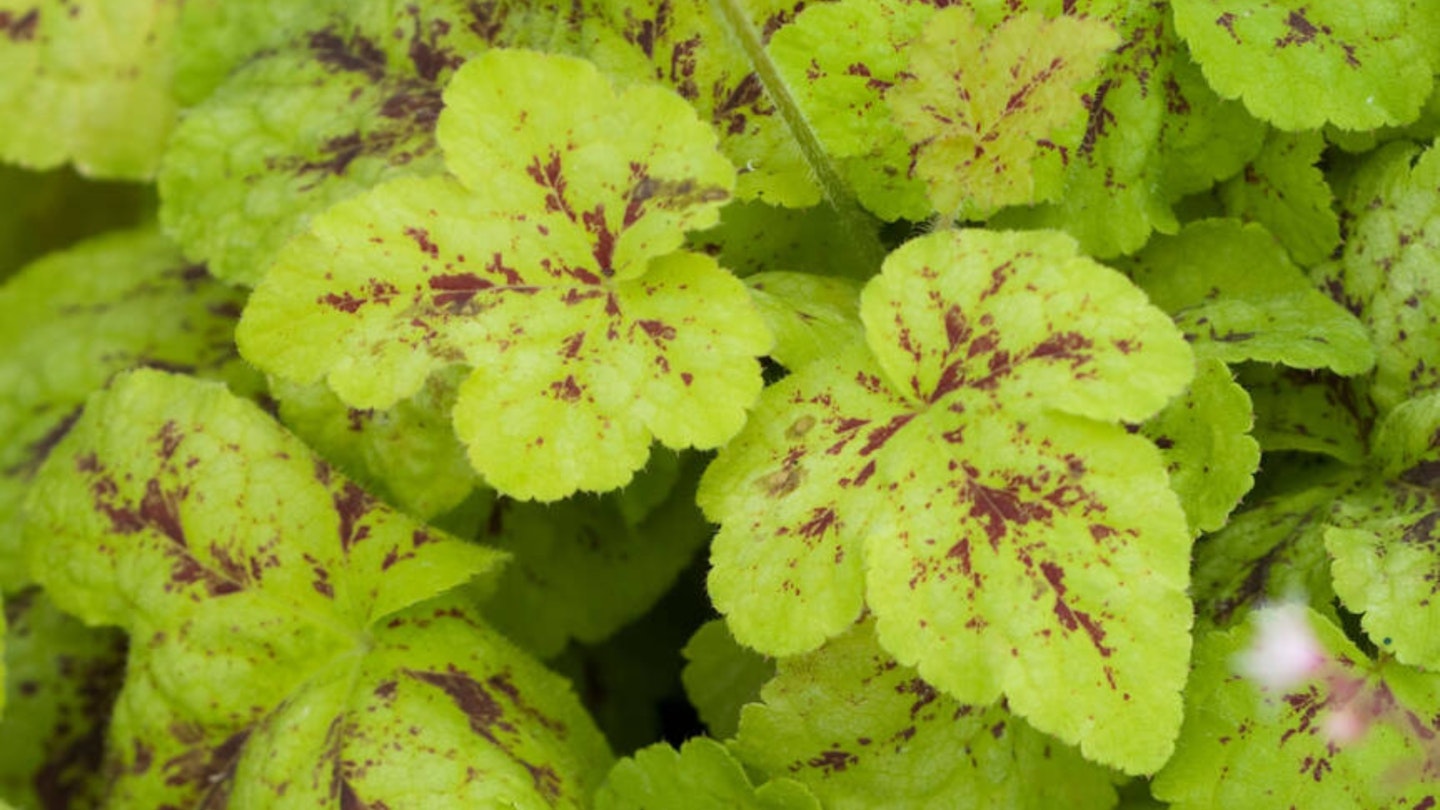
Now available in a vast variety of foliage colours and patterns for a long season of colour, heucheras are usually more mounding in growth and heucherellas more trailing.
Try: Heucherella ‘Yellowstone Falls’ (chartreuse/crimson leaves).
Hosta
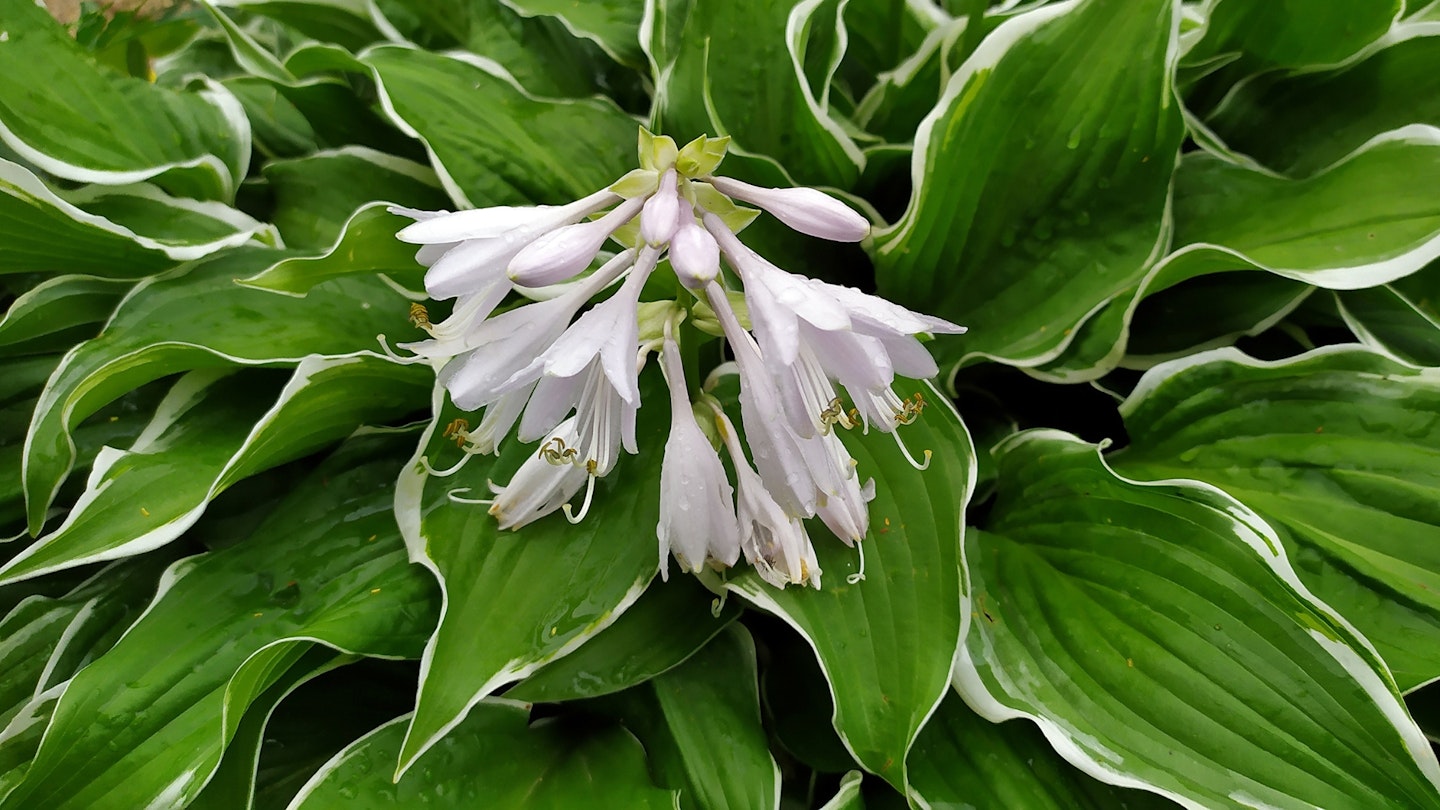
Classic shade plants with foliage in bold shapes and a myriad of leaf patterns. Much easier to protect from slugs when grown in a container. Repot every couple of years, increasing the pot size.
Try: ‘Fragrant Bouquet’ (variegated, scented).
Shade-loving selection: Shrubs and climbers
Camellia
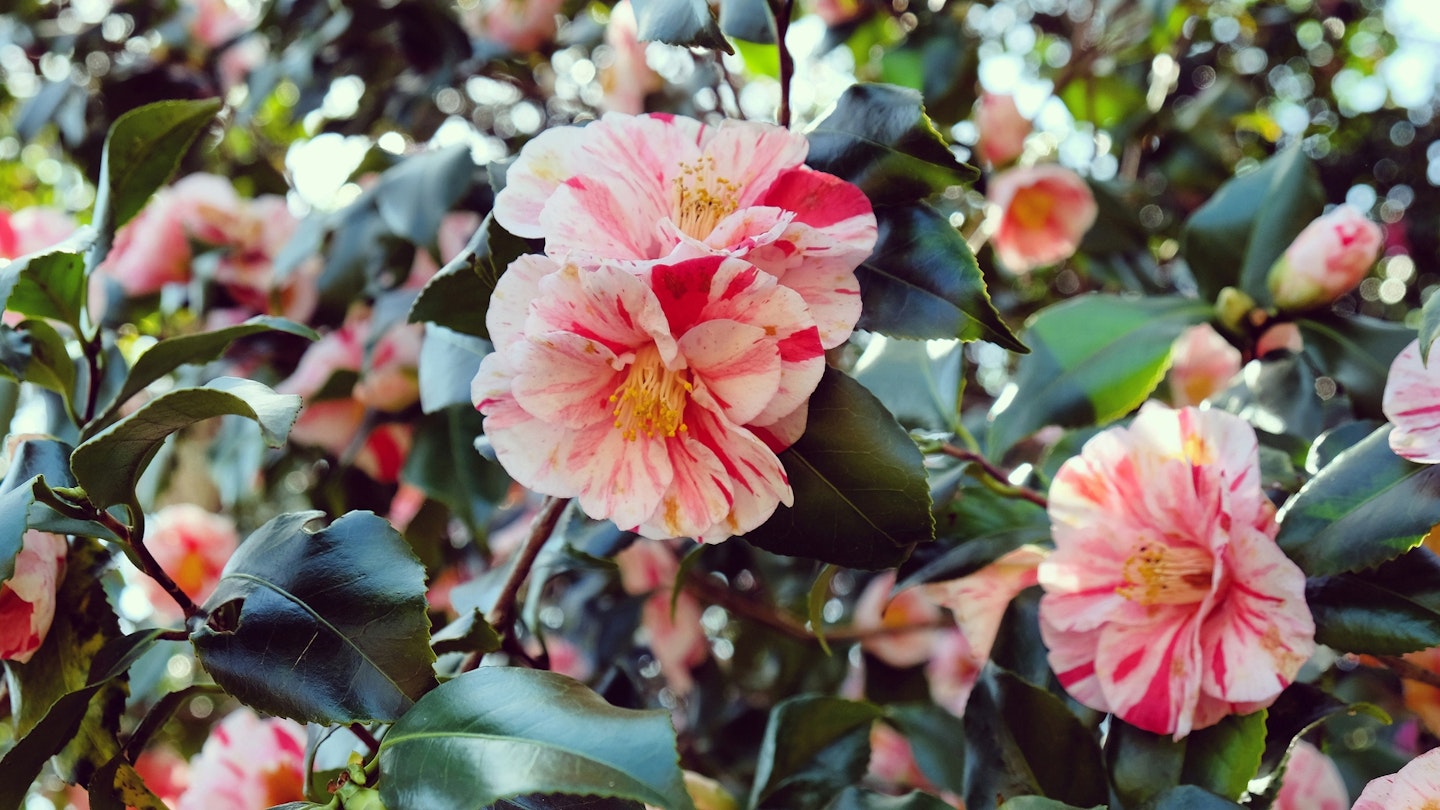
Glossy-leaved evergreen shrubs with single and double flowers in late winter and spring. Shade from early morning sun protects the flowers from frost damage. No pruning usually needed unless to improve the shape.
Try: ‘Lavinia Maggi’ (white/cerise flowers) in pots of lime-free (ericaceous) compost.
Cornus (dogwood)
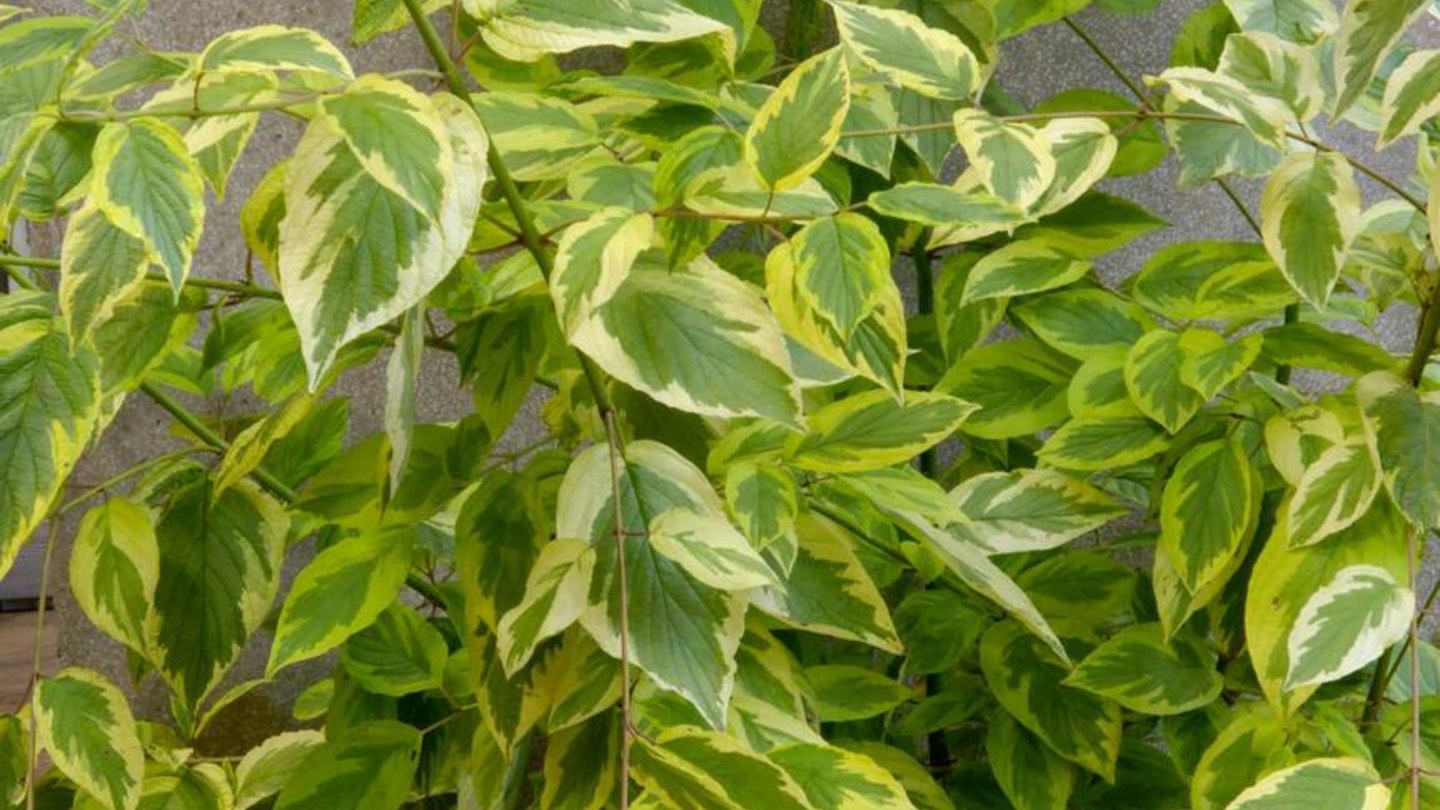
Variegated dogwoods provide a long season of spring-to-summer-to-autumn foliage interest, plus winter stems in crimson, scarlet, orange or yellow to decorate with Christmas lights. Keep moist, especially in autumn or the leaves may drop early.
Try: ‘Hedgerow’s Gold’ (red stems, variegated).
Hedera (ivy)
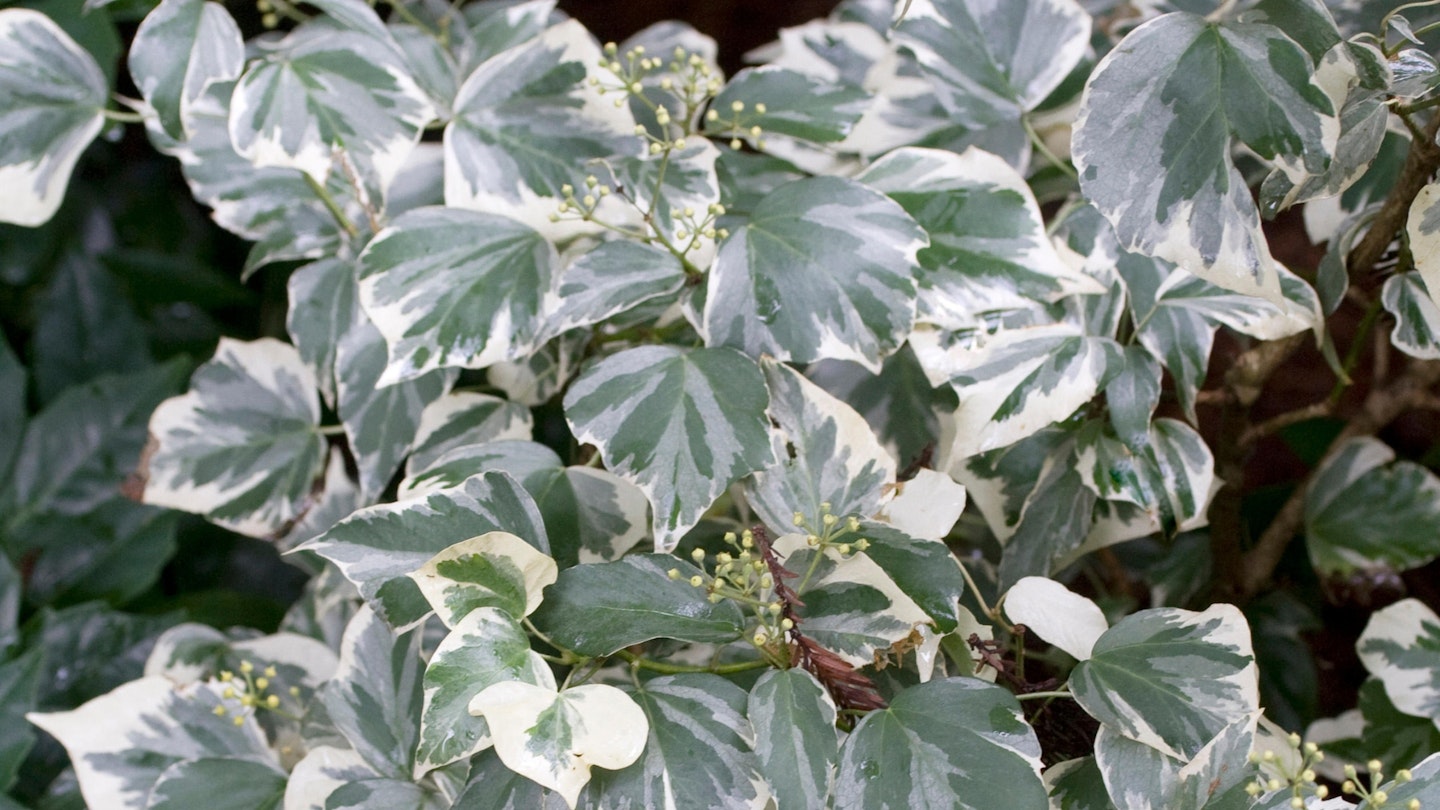
Ivies make fine self-clinging climbers for shaded walls or tree trunks. Silver variegated varieties work best as silver goes well with most flowers and foliage. Tape the young shoots to a wall or tree trunk to get them climbing in the right direction and let shoots trail over pot sides or creep as ground cover.
Try: ‘Glacier’ (green/grey/white leaves).
Sarcococca (Christmas box)
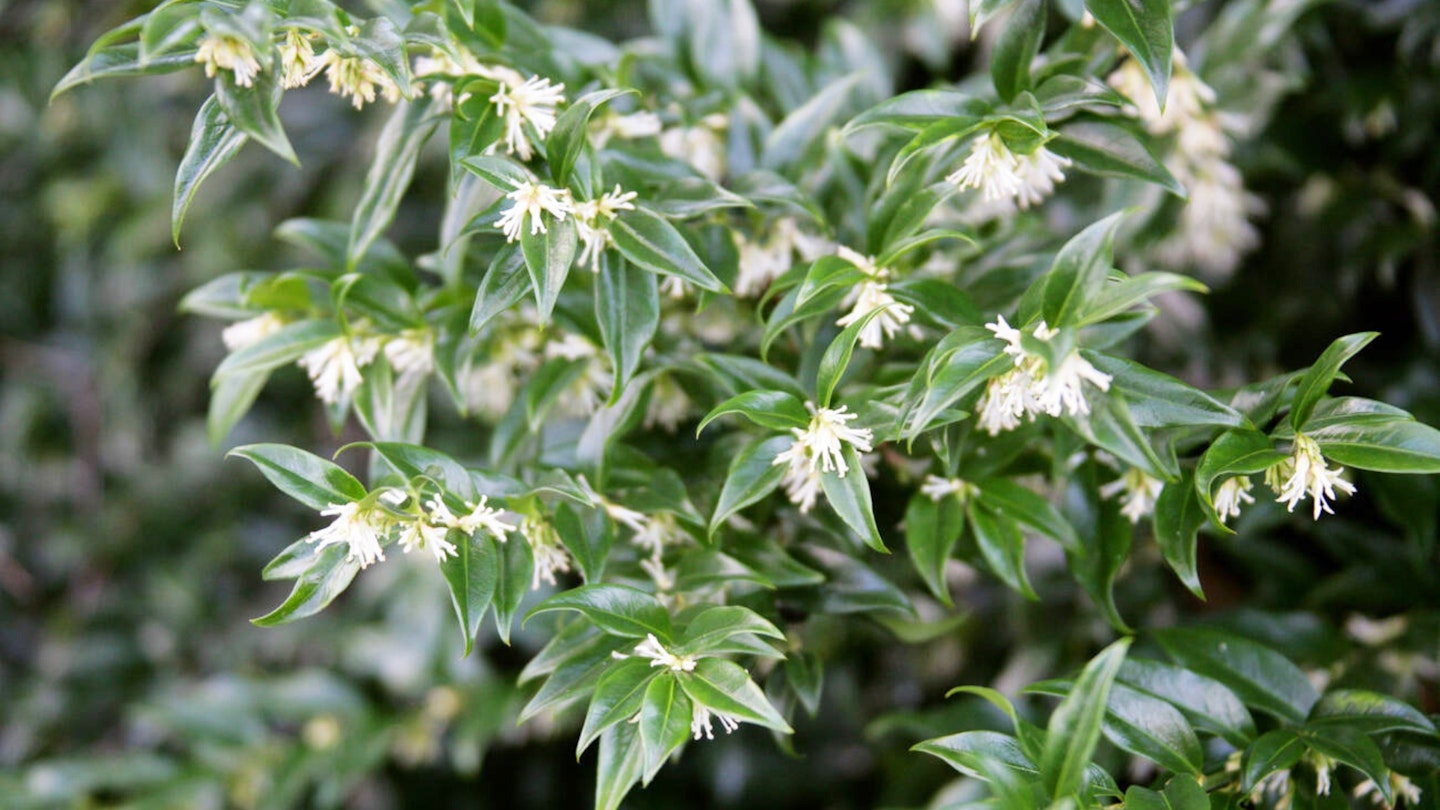
A tough and dependable evergreen with discreet white or red-and-white winter flowers, carrying a powerful sweet scent, followed by red or black berries. Often self sows. Does well in pots, even when neglected.
Try: Sarcococca confuse with white flowers/black berries.
Pieris
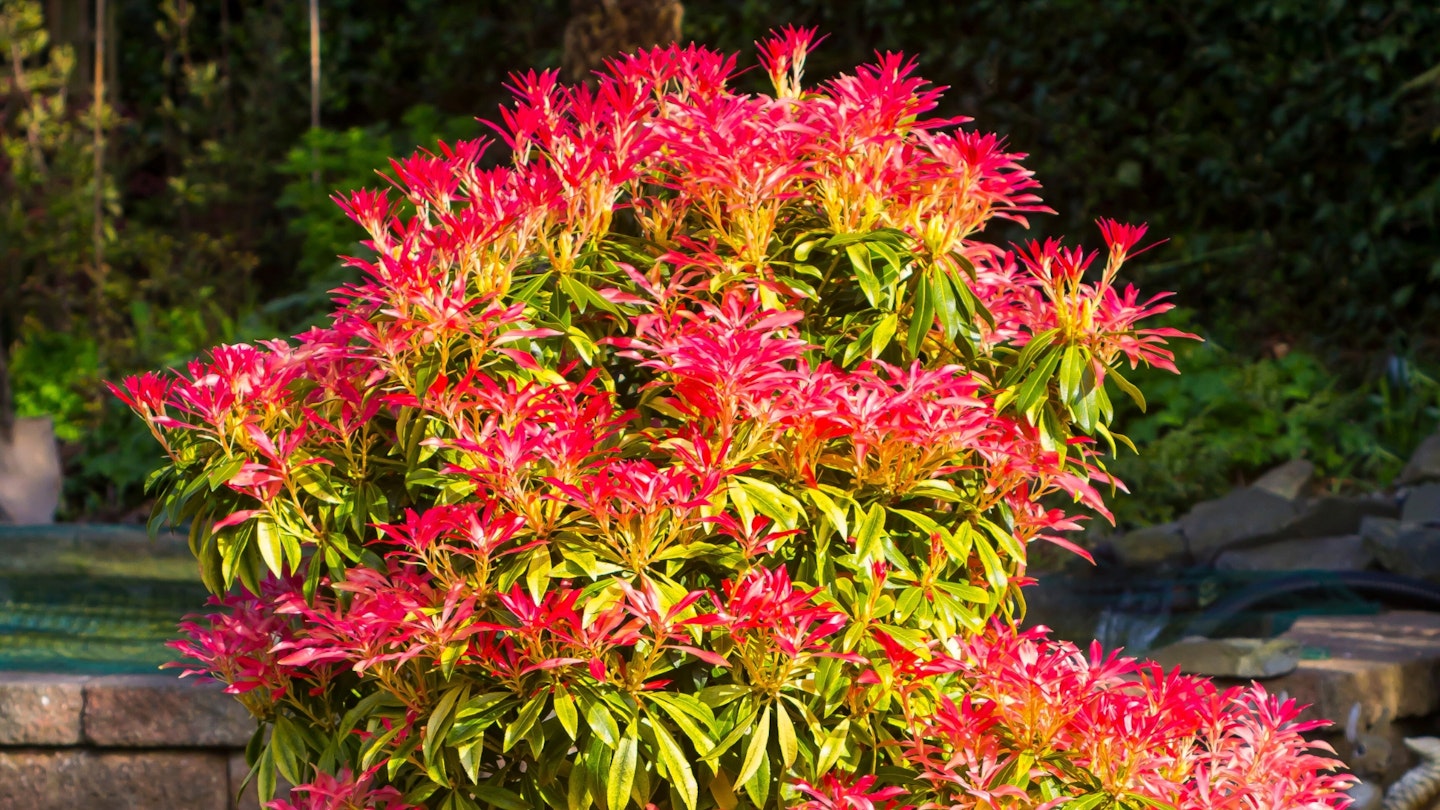
Colourful evergreens with dark glossy foliage, bright red new spring growth and long strings of lily-of-the-valleylike spring flowers. Grow in pots of lime-free (ericacous) compost.
Try: ‘Mountain Fire’ (red to chestnut leaves, white flowers).
Simply the best: Impatiens
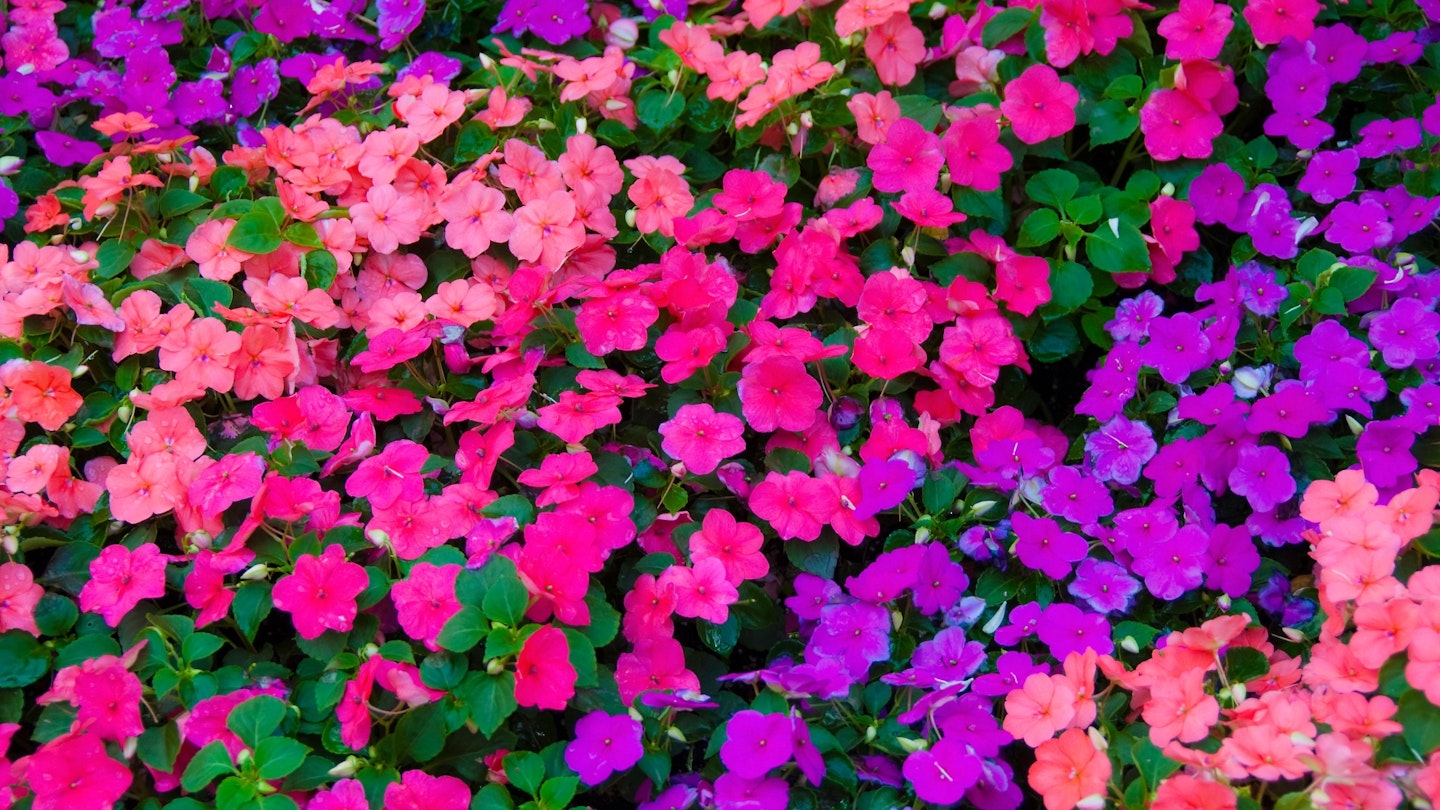
One summer annual that stands out above all the others for shady patio containers is impatiens (Busy Lizzie). ‘Beacon White’ is the standout for shaded window boxes. Tucked cosily against a wall in a window box they’ll flower right into autumn. Never let them dry out as, once wilted, they’re never quite the same.
Try: disease resistant Beacon Series in six colours.
Get growing
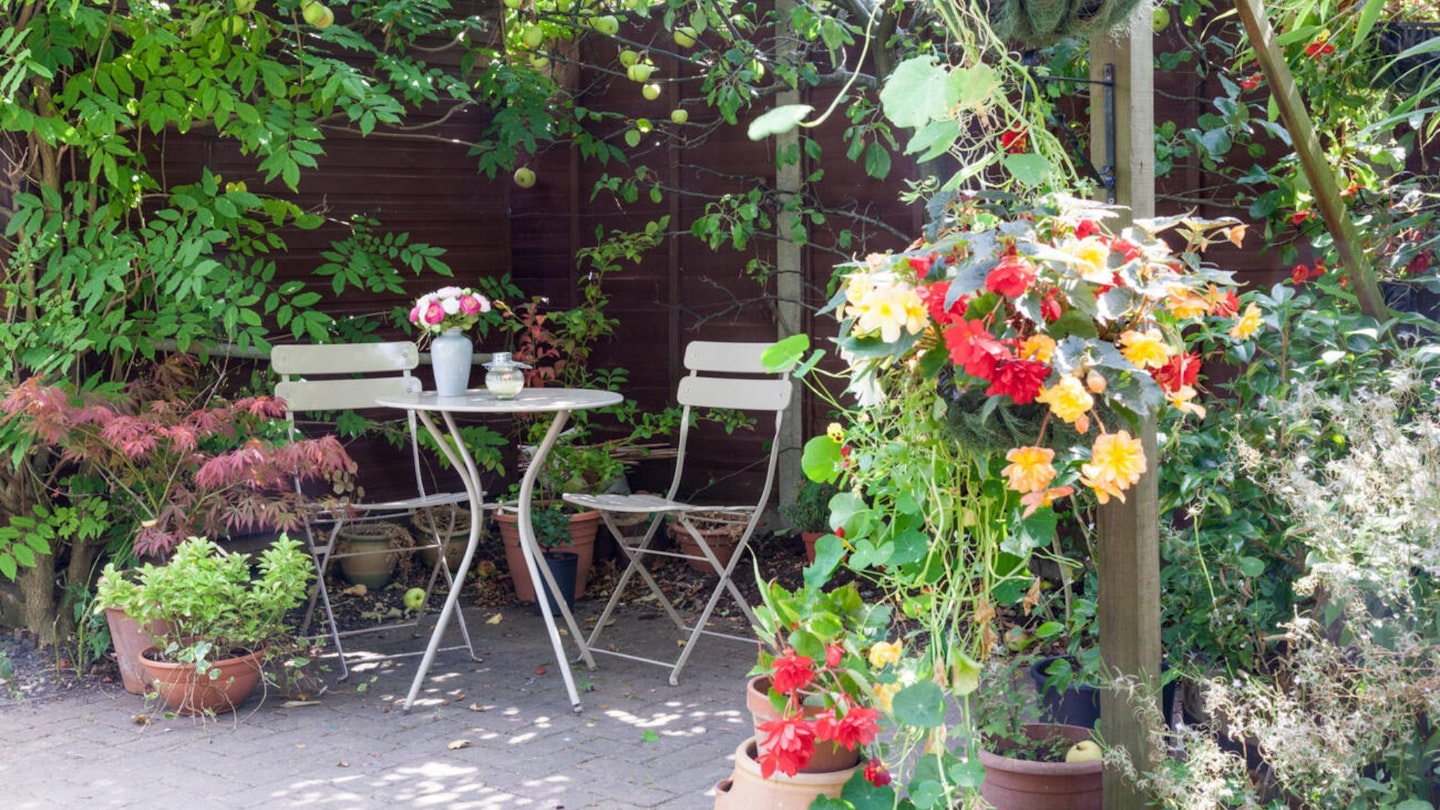
-
Shrubs and perennials in pots are best grown in John Innes Number 3 compost.
-
Turn pots 90° every month so all sides receive equal light.
-
Water regularly; a drip system helps you water all your pots with one turn of the tap. Invest in some self-watering pots.
-
Feed regularly throughout the growing season.
-
Reduce the rate at which terracotta pots dry out by lining them with polythene before filling with compost.
